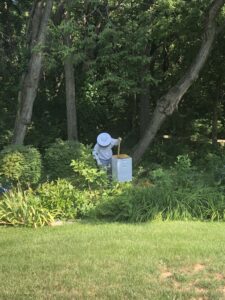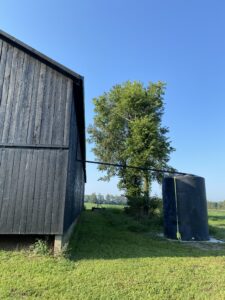Sustainability and Innovation on Barton Brothers Farms
For a farm to last for generations, it must be able to adapt. Barton Brothers Farms—run by five Barton siblings and their uncle—is no exception. Over four generations, the corn, grain and crop farm in Kentucky’s Bluegrass region has shifted to meet changing times and consumer needs.

When James Barton, the family patriarch and an agricultural leader in the community, died in 2017 from a farming accident, the siblings came together as a cohesive team. All trained in a variety of professions, they assumed unique roles within the farming operation based on their specialties.

They also shifted the farming operation toward an interesting new crop: truffles. “For over 100 years, the major cash crop on our family farm has been tobacco. This was also the case for most family farms in Kentucky,” says John Barton. With the domestic demand for tobacco decreasing, farmers have since searched for alternative sources of income.
The soils in central Kentucky are unique for their high calcium and phosphate content. “The result is high soil pH, which is ideal for growing truffles,” John says.
To date, the siblings have planted 300 white oak and hazelnut trees inoculated with Black Périgord or Burgundy truffle spores. Over 40 pecan trees have been planted between the truffle varieties to reduce intermixing of the truffle selections.
“Truffles are a fungi that grow on the roots of the trees and shrubs that we planted,” says Chris Barton. “It’s a symbiotic relationship. The truffle provides nutrients to the tree, and the tree provides carbon or sugar to the truffle so they both can benefit in their growth.”

The truffle, as a fungus, requires moist soil conditions. Although the farm gets ample amounts of rain, during the late summer months the farm needs to supplement the rain with additional irrigation.
Barton Brothers Farms used a grant from the Brighter Future Fund to invest in a rainwater harvesting and solar drip-irrigation system. This much-needed sustainable watering system will nourish the trees inoculated with truffle spores, while the solar-powered catch system allows the farm to conserve water resources and be less dependent on fossil fuels.
American Farmland Trust, with the help of Tillamook Creamery, launched the Brighter Future Fund to support farmers in the face of pressing challenges like climate change and COVID-19.
As early adopters of best farming practices, like no-till and precision planting, the farm’s sustainability practices are critical to their success. Meg Barton Galvin has also developed organic pollinator gardens and reintroduced beekeeping to the surrounding fields.
“The rainwater collection system and the solar irrigation pump will hopefully provide a sustainable way for keeping this farm going into the future,” Chris says.
Brighter Future Fund
Informed by farmers, built on experience, and inspired by you. AFT’s Brighter Future Fund carries forward AFT's commitment to addressing inequalities in our agricultural system by providing grants up to $5,000 to BIPOC, LGBTQ+, and/or women farmers nationwide. Help us support another round of inspiring farmers by donating to the fund today! 100% of all funds raised will go directly to farmers to strengthen farm resilience, enhance farm viability, and improve access to land.
Donate
